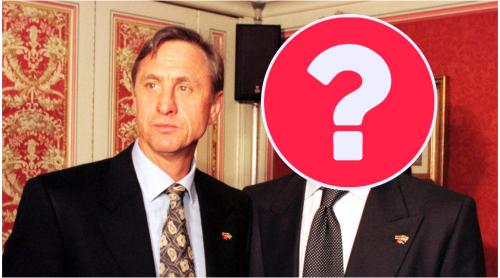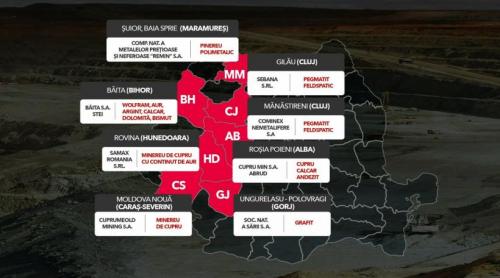Haifa, Beirut and many other Lebanese and Israeli towns and villages are under fire. Who would have thought this possible a few weeks ago? Across the globe, the reaction to the images of destruction and death in Lebanon, but also in Gaza and Israel has been one of abhorrence.
Of course, it was well known that Hezbollah - viewed with good reason as a terrorist organization - had been stockpiling an arsenal of Katyusha rockets, as well as longer-range guided missiles. Nor was it a secret that Hezbollah operates as a state within a state, with its own highly motivated private army and terrorist structures. It is Hezbollah, not the Lebanese government and its army, which has controlled the Lebanese-Israeli border ever since Israelâs withdrawal from southern Lebanon in 2000.
Although Hezbollah presides over two ministers in the Lebanese government and several members of parliament, it does not act in the interest of the Lebanese state. Rather, its interests are defined in Damascus and Teheran, where much of its arsenal originates. This outside control is the principle cause of the present tragedy, which essentially constitutes a "proxy war."
Who is acting as a proxy for whom and for what? Let us retrace the precipitating cause of this war. Within Hamas, which is also strongly influenced by Syria and Iran, a fundamental debate had arisen as to whether, in the aftermath of electoral success and the ensuing mandate to govern the Palestinian territories, the organization should recognize Israel? Agreement was imminent when the Hamas leadership abroad (which is based in Damascus) ordered the attack on a military post in Israel in which several soldiers were killed and one was abducted.
The outcry in Israel and the resulting massive Israeli military response inevitably causing high Palestinian casualties was clearly anticipated and indeed an integral part of the cold calculations of those who organized the attack. The emerging Palestinian consensus was torpedoed and recognition of Israel rendered irrelevant, and the radicals once again proved victorious.
A few days later, Hezbollah followed suit and abducted another two Israeli soldiers on the Lebanese-Israeli border making it clear that Hamas and Hezbollah had coordinated their actions to provoke a large-scale confrontation with Israel. All this happened only days before the G8 meeting in St. Petersburg, where the issue of Iranâs nuclear ambitions was a main priority.
The current war in Lebanon is not a war by the Arab world against Israel; rather, it is a war orchestrated by the regionâs radical forces - Hamas and Islamic Jihad among the Palestinians, Hezbollah in Lebanon, together with Syria and Iran - that fundamentally rejects any settlement with Israel. Conflict was sought for three reasons: first to ease pressure on Hamas from within the Palestinian community to recognize Israel; secondly to undermine democratization in Lebanon, which was marginalizing Syria; and thirdly to lift attention from the emerging dispute over the Iranian nuclear program and demonstrate to the West the "tools" at its disposal in the
case of conflict.
Moderate Arab governments understand full well the issue at stake in this war: it is about regional hegemony in the case of Syria with Lebanon and Palestine and, on a wider level, Iranâs hegemonic claim to the entire Middle East. Yet the war in Lebanon and Gaza could prove to be a miscalculation for the radicals. By firing missiles on Haifa, Israelâs third-largest city, a boundary has been crossed. From now on, the issue is no longer primarily one of territory, restitution, or occupation. Instead, the main issue is the strategic threat to Israelâs existence.
The rejectionist front has underestimated Israelâs determination and capacity for deterrence. It has proven that there is no way back to the status quo in Lebanon, and it revealed Iranâs hegemonic aspirations to the entire world. The folly of this is readily apparent, because it doesnât require much imagination to see what the Middle East would look like if an Iranian nuclear umbrella were shielding the radicals.
This miscalculation will become obvious as four developments unfold:
UN Resolution 1559 - which requires the disarmament of all militias in Lebanon with the help of the international community - is enforced and a return to the status quo rendered impossible;
todayâs de facto "anti-hegemon" coalition, comprising moderate Arab countries (including moderate Palestinians), is transformed into a robust and serious peace initiative;
the Middle East Quartet, led by the US becomes actively engaged for a viable solution and provides the necessary political, economic, and military guarantees to sustain it over time.
Israel has a key role to play here. Twice, it withdrew its troops unilaterally behind its recognized borders, namely from southern Lebanon and Gaza. Both times, Israelâs land-for-peace formula resulted in land for war. Now, with Israelâs existence under threat, peace with its Arab neighbors seems a more distant prospect than ever.
I believe that todayâs war in Lebanon can open up a new opportunity for peace. The sooner the guns are silenced in Lebanon the better. But letâs not forget the warâs starting point: the clash within Hamas over whether to recognize Israel. And letâs not forget the attitude of moderate Arab governments toward this war and to the hidden intentions of those who sought it.
Israelâs security makes a restructuring of Lebanonâs internal organization and a guarantee of its state sovereignty nonnegotiable. Now is the time to play the Syrian card and bring President Bashar al-Assad onto the path of normalization. With the Golan Heights, Israel has the key element in its hand. Without Syria, Iran would be alone. Iraq, too, would profit from such a development.
Finally, things are not as hopeless for the Palestinians as they may seem. In Israelâs prisons, a consensus has developed among leading Fatah and Hamas Palestinian inmates on accepting a Palestinian state within the 1967 borders. This new Palestinian realism must be supported. But there can be no way past the historic date of June 1967 (for both sides).
In Israel, has the realization of a new strategic threat made debates about land and settlements seem obsolete? Because this war is directed against Israelâs existence, strategic and thus regional security will gain much greater emphasis.
How then, will Israel define its security in the future? Currently, Israel emphasizes massive deterrence, but it would be well advised to utilize the political and diplomatic possibilities presented by this war and take the initiative from a position of strength to offer a comprehensive peace to all those who are ready to recognize its existence and permanently renounce violence, not just in word, but also in deed.
Now is the time to think big! This applies not only to Israel and its neighbors, but to the US and Europe as well. This war offers a chance for lasting peace. We must not let it slip away.
Copyright: Project Syndicate/Institute for Human Sciences, 2006.
www.project-syndicate.org


















